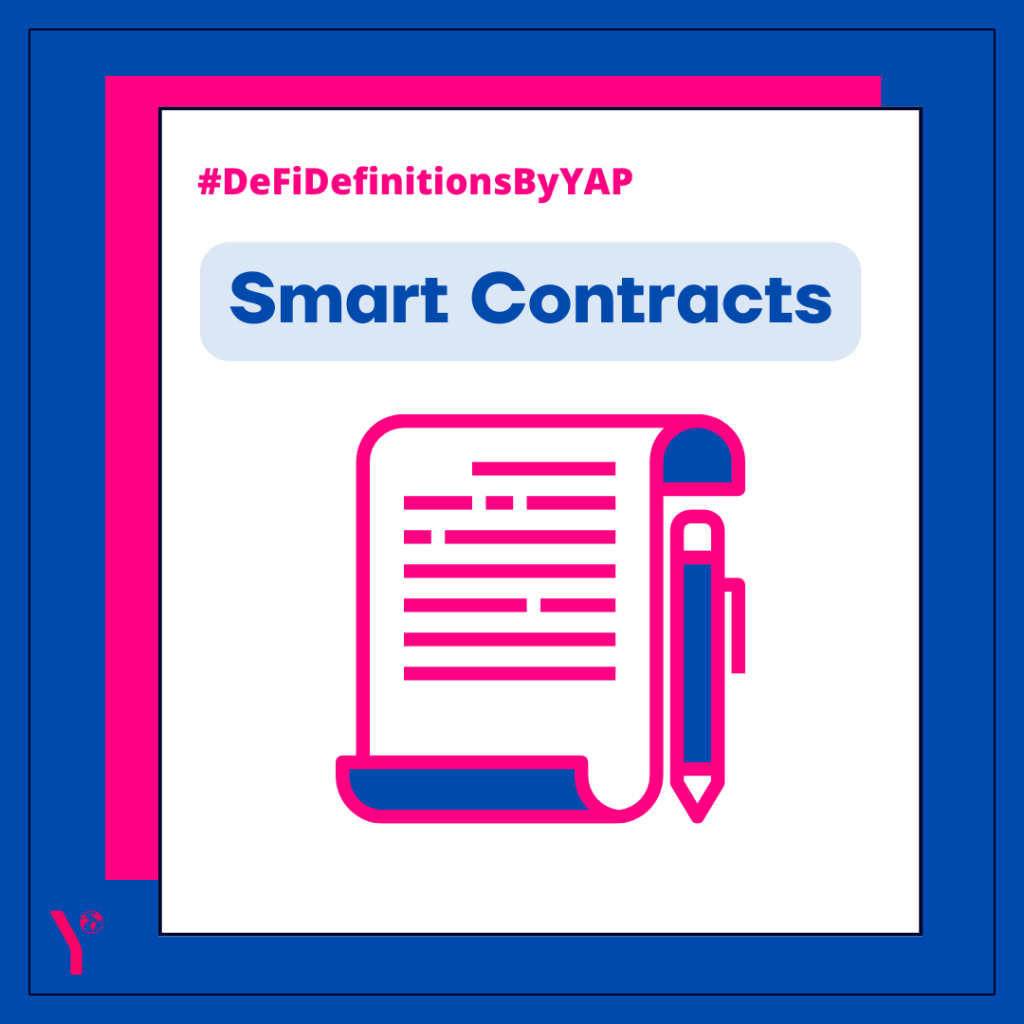Smart contracts are the foundation of much of the crypto world. From NFTs to DeFi, smart contracts execute transactions and identify ownership as we build a decentralized, trustless world.
Smart contracts are computer programmes on certain blockchains. These are embedded with lines of code that dictate the conditions under which the contract will automatically be executed. These programmes allow actions on the blockchain to be anonymous, transparent and irreversible. They do not require users submit personal information or have middlemen to ensure the transaction is approved and takes place.
The most cited explanation of Smart Contracts is Nick Szabo’s vending machine analogy. Rather than dealing with a merchant, using a vending machine only requires you to input certain codes and some money for a specific product. Smart Contracts work similarly as once the codified conditions are met (inserting money in the case of the vending machine) they unlock a predetermined outcome (receiving your can of coke).
While a useful tool, smart contracts are not without risks and flaws. This is because smart contracts are coded by humans and so can be written with vulnerabilities or flaws that can be exploited as witnessed with the most recent Nomad bridge hack.
